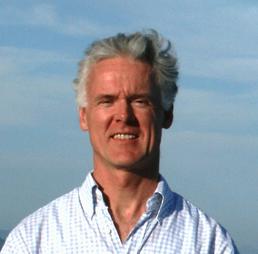Seminar 1st February 2010 2 p.m. Building 32, Room 3077
IAM Seminar: Exploiting User Generated Content to Improve Search
Prof Wolfgang Nejdl
University of Hannover
- Web page
- http://www.kbs.uni-hannover.de/~nejdl/
- Submitter
- Deborah Guy
Abstract More and more information is available on the Web, and the current search engines do a great job to make it accessible. Yet, optimizing for a large number of users, they usually provide good answers only to ``most of us'', and have yet to provide satisfying mechanisms to search for audiovisual content. In this talk I will present some ongoing work at L3S addressing these challenges, done in the context of several European Union funded projects on personal information management and web search.
Regarding personalization, I will talk about personalizing Web Search based on user content, which goes beyond simple user profiles used in other systems. The algorithms presented improve Web queries by expanding them with terms collected from each user's personal information repository, thus implicitly personalizing the search output. Generating the additional query keywords is done by analyzing user data at increasing granularity levels, ranging from term and compound level analysis up to global co-occurrence statistics, as well as to using external thesauri. Extensive empirical analysis shows some of these approaches to perform very well, especially on ambiguous queries, producing a very strong increase in the quality of the output rankings.
Regarding search for audiovisual content, I will focus on exploiting user generated information, and discuss what kinds of tags are used for different resources and how they can help for search. Collaborative tagging has become an increasingly popular means for sharing and organizing Web resources, leading to a huge amount of user generated metadata. These tags represent different aspects of the resources they describe and it is not obvious whether and how these tags or subsets of them can be used for search. I will present an in-depth study of tagging behavior for different kinds of resources - Web pages, music, and images. The results are promising and provide more insight into both the use of different kinds of tags for improving search and possible extensions of tagging systems to support the creation of potentially search-relevant tags.
Speaker Biography Prof. Dr. Wolfgang Nejdl (born 1960) has been full professor of computer science at the University of Hannover since 1995. He received his M.Sc. (1984) and Ph.D. degree (1988) at the Technical University of Vienna, was assistant professor in Vienna from 1988 to 1992, and associate professor at the RWTH Aachen from 1992 to 1995. He worked as visiting researcher / professor at Xerox PARC, Stanford University, University of Illinois at Urbana-Champaign, EPFL Lausanne, and at PUC Rio.
Prof. Nejdl heads the L3S Research Center (http://www.L3S.de/) as well as the Distributed Systems Institute / Knowledge Based Systems (http://www.kbs.uni-hannover.de/), and does research in the areas of search and information retrieval, information systems, semantic web technologies, peer-to-peer infrastructures, databases, technology-enhanced learning and artificial intelligence. Some recent projects in the L3S context include the PHAROS Integrated Project on audio-visual search, the OKKAM IP focusing on entities on the Web, the Digital Library EU project LiWA, coordinated by L3S, which investigates Web archive management and advanced search in such an archive, and the FET IP project LivingKnowledge, which is developing algorithms and methods to handle and exploit diversity, bias and opinion on the Web.
Wolfgang Nejdl published more than 230 scientific articles, as listed at DBLP, and has been program chair, program committee and editorial board member of numerous international conferences and journals, most recently including the role of general chair for AH'08 in Hannover, and PC chair for WWW'09 in Madrid, see also http://www.kbs.uni-hannover.de/~nejdl/
